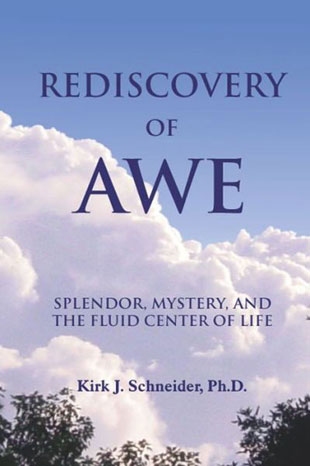"Awe is the finest portion of mankind:
However scarce the world may make this sense —
In awe one feels profoundly the immense."
— Johann von Goethe
In the face of behavioral reductionism, epistemological anarchism, and spiritual puritanism, we need an awe-based psychology which makes the most of appreciation, recognizes life's paradoxes, and witnesses woundings, says Kirk Schneider, a licensed psychologist and leading spokesperson for contemporary humanistic psychology. With great elan, the author spells out an awe-base curriculum emphasizing liberation, mystery, humility, and wonder.
Schneider believes that awe can provide our lives with mystery, wonder, magnificence, societal transformation, and faith in the inscrutable. It can lead to what he calls "enchanted agnosticism" which he defines as:
"bedazzled uncertainty, exhilarated discernment, and enraptured curiosity; it is the openness and skepticism of science wedded to the zeal and exaltation of religion; and it is the veneration of mystery wedded to the solemnity of responsibility. . . . enchanted agnosticism [is] a radical new life-philosophy: it is a view that trumps nihilism as it does dogma, purposelessness as it does certitude."
